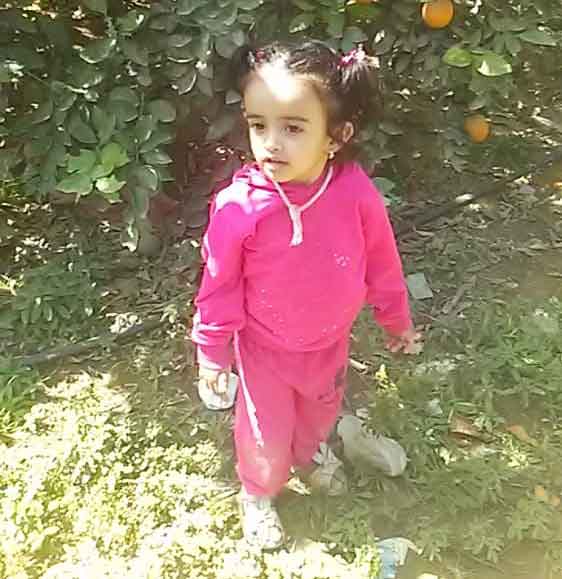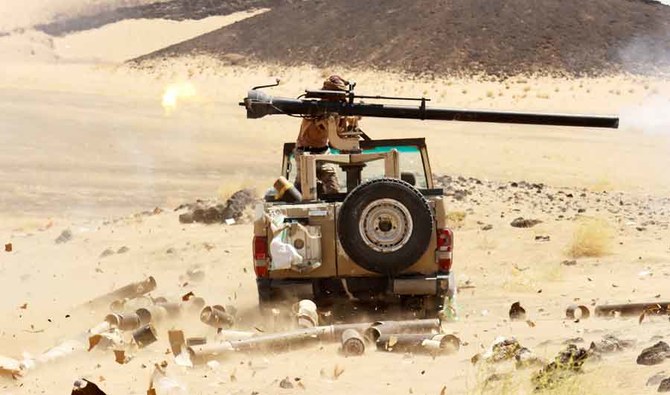ALEXANDRIA: Shocking images showing the charred bodies of a father and daughter killed in a Houthi missile strike in Yemen’s central city of Marib have sparked outrage inside and outside the country amid calls to “name and shame” the militia for its brutal attacks on civilians.
The five-year-old girl was among at least 21 people killed when a ballistic missile fired by the Houthis struck a fuel station in densely populated district in Marib on Saturday, Saba news agency reported.
A medical source another child, 10-year-old Hassan Al-Hubaishi, was also killed in the attack, and several other people were wounded.
The attack occurred while dozens of cars were waiting at the station to be refueled, onlookers said.
The girl, identified as Lian Taher, was inside her father’s car outside the station when the missile hit.
Emergency workers who rushed to the scene were targeted by an explosive-laden drone fired by the Houthis, leaving many civilians bleeding to death.
Opinion
This section contains relevant reference points, placed in (Opinion field)
After footage of the charred remains of the child and her father were widely shared on social media, Yemeni human rights activists, government officials and Western diplomats strongly condemned the Houthi attack and demanded the militia be punished for targeting civilians in Marib.
Marib Gov. Sultan Al-Arada warned that Houthi missile and drone attacks are threatening tens of thousands of internally displaced people who live in the city, and urged local and international organizations to condemn the attacks.

Lian Taher Mohammed
“The local authority calls on all Yemeni people from across the political and social spectrum to stand together in the face of the Houthi militia’s terrorism, which was and still is the cause of most of its tragedies,” he said.
Ali Al-Lahabi, a Yemeni MP, accused the Houthis of violating religious and tribal norms that forbid the targeting of civilians.
“Today’s crime against civilians and children in Marib breaches tribal norms in Yemen and all humanitarian Arab and international norms,” he said in a Twitter post.
Angered by images of the dead civilians, Abdul Malik Al-Mekhlafi, an adviser to Yemeni President Abed Rabbo Mansour Hadi, urged those who believe the Houthis can cooperate with peace efforts to change their mind.
“The attack again confirms the ugly face of the Houthi, who has rejected all international efforts to stop the war,” Al-Mekhlafi said on Twitter.
On the ground, Yemeni army commanders battling the Houthis in Marib and Hodeidah said that deadly attacks by the militia will continue until military and financial support from Iran is ended.
“War crimes will not stop unless the Iranian regime is deterred, and the Houthis who kill children and women are brought before the International Criminal Court,” Sadeq Dewaid, a National Resistance Forces spokesperson in the western province of Hodeidah, said.
Western envoys to Yemen also voiced their grief and anger at the civilian deaths, demanding the Houthis stop attacking civilians and engage with the UN-brokered peace proposals.
The US Embassy in Yemen described the Houthi missile and drone attacks in Marib as “inhumane violence.”
Cathy Westley, the embassy’s charge d’affaires, said in a statement: “We are horrified by reports that the Houthis used a ballistic missile to destroy a gas station in Marib, killing and wounding civilians. The Houthis reportedly then used a drone to attack an ambulance crew coming to aid the injured. This inhumane violence must end.”
The UK’s Yemen envoy, Michael Aron, said on Twitter that he was shocked by the reports of the attacks, adding that only a nationwide truce would put an end to human losses.
“The Houthis must stop their Marib offensive and engage seriously with the UN. Agreement on a nationwide cease-fire would prevent such tragic losses and allow humanitarian action,” he said.
Yemeni officials and experts warned that the militia attacks could destroy intensive international diplomatic efforts to end the war.
Hooria Mashhour, a former human rights minister, told Arab News that the UN Security Council should impose the peace plan that calls for an immediate end to the fighting in Yemen.
“While the war continues and there are no sincere intentions to achieve a comprehensive cease-fire, we will see tens and even thousands of charred bodies of children and adults,” Mashhour said.















